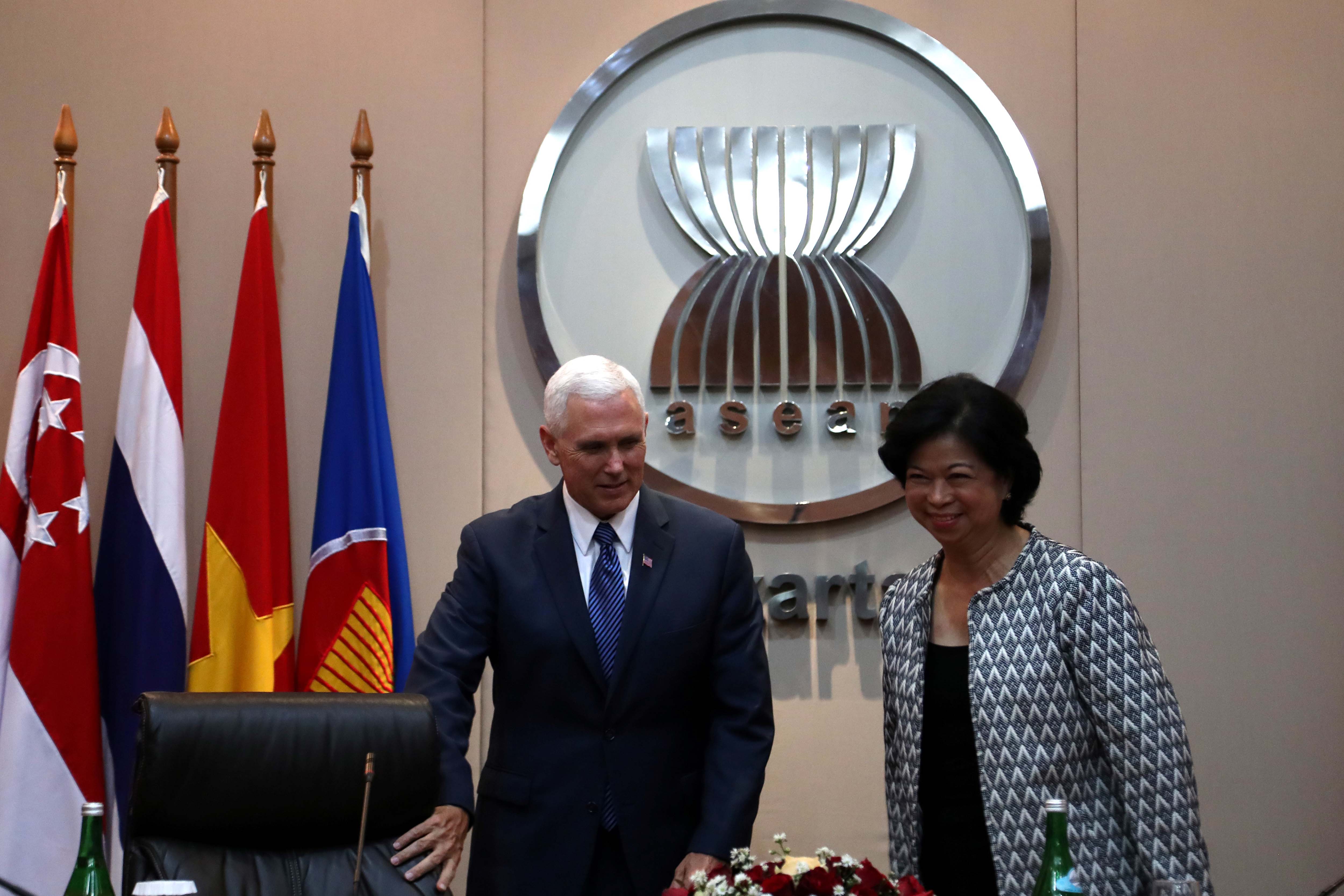The highly anticipated visit of the US President Donald Trump to ASEAN in November 2017 is poised to further foster US-ASEAN diplomatic relationship, which began in 1977. Ever since, the US has officially become a dialogue partner with ASEAN, engaging on economic, security, rule of law, sustainable development and human rights matters. Among the focus areas of US relationship with ASEAN were addressing transnational challenges, promoting opportunity for women, cultivating the emerging leaders, expanding maritime cooperation and supporting economic integration.
Malaysia’s MIDF Amanah Investment Bank Bhd chief economist Dr Kamarudin Mohd Nor said Trump’s visit to the Philippines during ASEAN Summit is expected to outline the US stance on regional security issues. Responding to The ASEAN Post via email, Kamarudin said the visit will further boost bilateral cooperation in various areas such as diplomatic, economic, regional security and trade between ASEAN and the US. “ASEAN and the US are always in a good diplomatic and trade relationship. I foresee that Trump’s visit to ASEAN will continue to benefit both nations and strengthen our relationship.”
US Vice President Mike Pence said the relationship between the US and ASEAN is a strategic partnership. “This year also marks the 40th anniversary of the US diplomatic relationship with ASEAN. Our relationship without a doubt has benefitted both ASEAN and America, diplomatically, economically and from the standpoint of national security,” he said in his keynote address during his visit to Indonesia in April this year. Pence said the president of US will attend the US-ASEAN Summit, the East Asia Summit, and the APEC Leaders Meeting in Vietnam and the Philippines this November. “By strengthening our economic ties, the US and ASEAN member nations can foster jobs, prosperity and growth in new and unprecedented ways. American exports to ASEAN member nations already support more than 550,000 jobs in the US, and almost 42,000 US companies export more than US$100 billion in goods and services to ASEAN nations every year. At the same time, the US imports a significant amount from ASEAN member nations as well. But amazingly, US companies invest more in ASEAN and its members than any other part of Asia, which is nearly US$274 billion – more than our investment in China, India and Japan combined.”
The Philippines’ Department of Foreign Affairs in a statement said it welcomes the participation of the US President Trump in the East Asia Summit and ASEAN-US Leaders’ Summit to be hosted by the Philippines in November. Among the issues that is expected to be discussed during the summit includes regional security, piracy, cross-border kidnappings, North Korean missile tests and the South China Sea dispute.
Despite assurance from Trump on ASEAN but he does not have any black and white policy on the region. Following the withdrawal of Trans-Pacific Partnership Agreement (TPPA), many questions are yet to be answered on US-ASEAN relations and it is still unclear as to his future intention with regards to foreign policy in Southeast Asia region.
